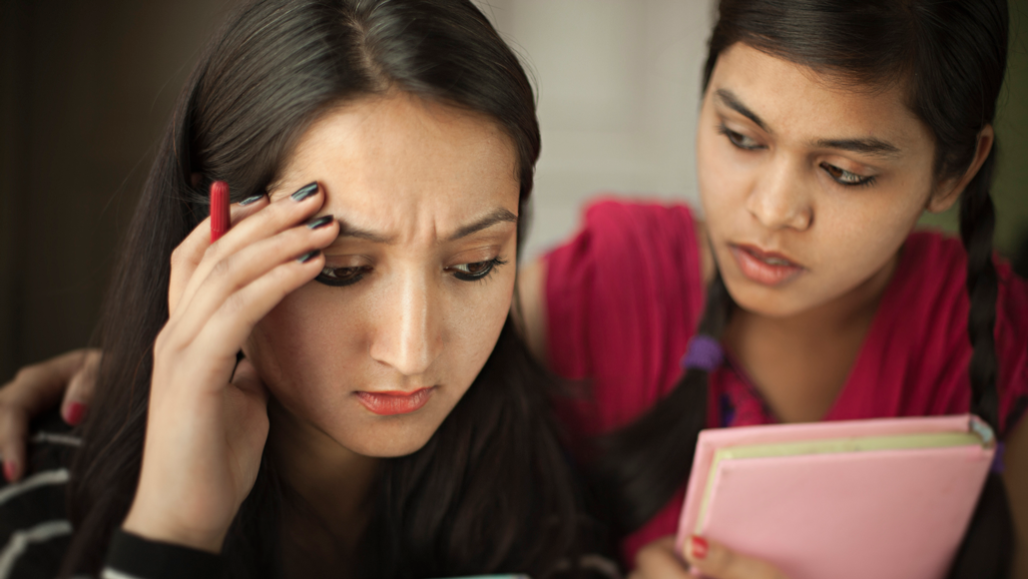Five ways to cope if shooter drills stress you out
Even if most students feel fine, everyone should know how to get help

Even if most students are okay with doing active-shooter drills at school, some students will likely find them troubling.
gawrav/E+/Getty Images
About 95 percent of U.S. public schools hold drills to prepare for possible shooters, says the National Center for Education Statistics. So far, there are no clear standards for those drills. Some run-throughs have been intense, with loud alarms, shots and make-believe shooters and victims. Others have been more subdued. Teachers and students practiced finding safe shelter inside locked classrooms or other places. Researchers are still studying the effectiveness of different types of drills. Meanwhile, some experts have concerns about the emotional impacts that these precautionary drills might have on students.
If done well, a lockdown drill can lower anxiety in students. It also can teach them good, adaptive behaviors for that time when a bad situation might arise, says Stephen Brock. He’s a school psychologist at California State University, Sacramento. And knowing what to do can help in case of any emergency.
But some kids may find a shooter drill troubling. They may already have had trauma in their lives. Other students may suffer from anxiety, depression or other mental-health issues. Still others might just find the situation creepy. Or, they might feel that shooter drills somehow make gun violence seem normal. Here are a few ways to cope.
Realize that school shootings are very, very rare. “This is something we do to keep you safe in school,” says Amanda Nickerson of the drills. She’s a psychologist at the University at Buffalo in New York. A school shooting is “very, very unlikely, but this is the kind of thing we would do if that were to happen.”
You can say no. “If your school is asking you to participate in a highly sensorial drill, you have a right to say no if you are uncomfortable,” says Melissa Reeves. She’s a school psychologist at Winthrop University in Rock Hill, S.C. By sensorial drills, she refers to ones that may mimic the sounds and sights of a shooting.
Guidance from the National Association of School Psychologists and the National Association of School Resource Officers says that schools should give advance warning before shooter drills. Many schools also let children out of drills with parental permission.
Talk about it. Ask to see a school counselor or talk with your teacher if you’re feeling uneasy about a drill. Other students might feel the same way. “At the end of the day, we need our kids to realize you’re not alone,” says Michele Gay. She is co-founder of Safe and Sound Schools. She wants kids to feel they “have the support system of a whole classroom of students and adults.”
Watch for signs. Even if you feel fine right after a drill, it might bother you later. Or, you might feel uneasy without knowing exactly why. Trouble with sleep could be one sign, Brock says. Other symptoms might include being easily startled, constantly worrying or being unable to stop thinking about something. Even not feeling good, or almost sick, could signal a problem, he notes. If you experience any of these things, talk with a school counselor, teacher, parent or other trusted adult.
“In most cases, people participate in these drills and don’t get more anxious and fearful,” Nickerson says. “But that could certainly happen. And we want you to know that you’re not alone.” She points out that “it’s a giant strength, not weakness, that you’re able to identify a problem that you need help with.”
Be proactive. Safe and Sound Schools encourages students to form safety clubs at school. Members do service projects to make their schools safer. The clubs also can give students a chance to get involved in conversations about school safety. That can give them a greater sense of security, Gay says.
Or, you may choose to take action in other ways. Aalayah Eastmond survived the 2018 shooting at Marjory Stoneman Douglas High School in Parkland, Fla. She’s now studying criminal justice at Trinity Washington University in Washington, D.C. She has testified in both the U.S. House and Senate, urging lawmakers to adopt common-sense laws to curb gun violence.
“If this is something that you’re passionate about, please get involved,” Aalayah says. Actions can include rallies, marches, lobbying and voter campaigns. “We cannot let this continue to happen,” she argues. “Too many people are dying every day.”







